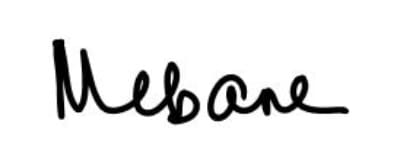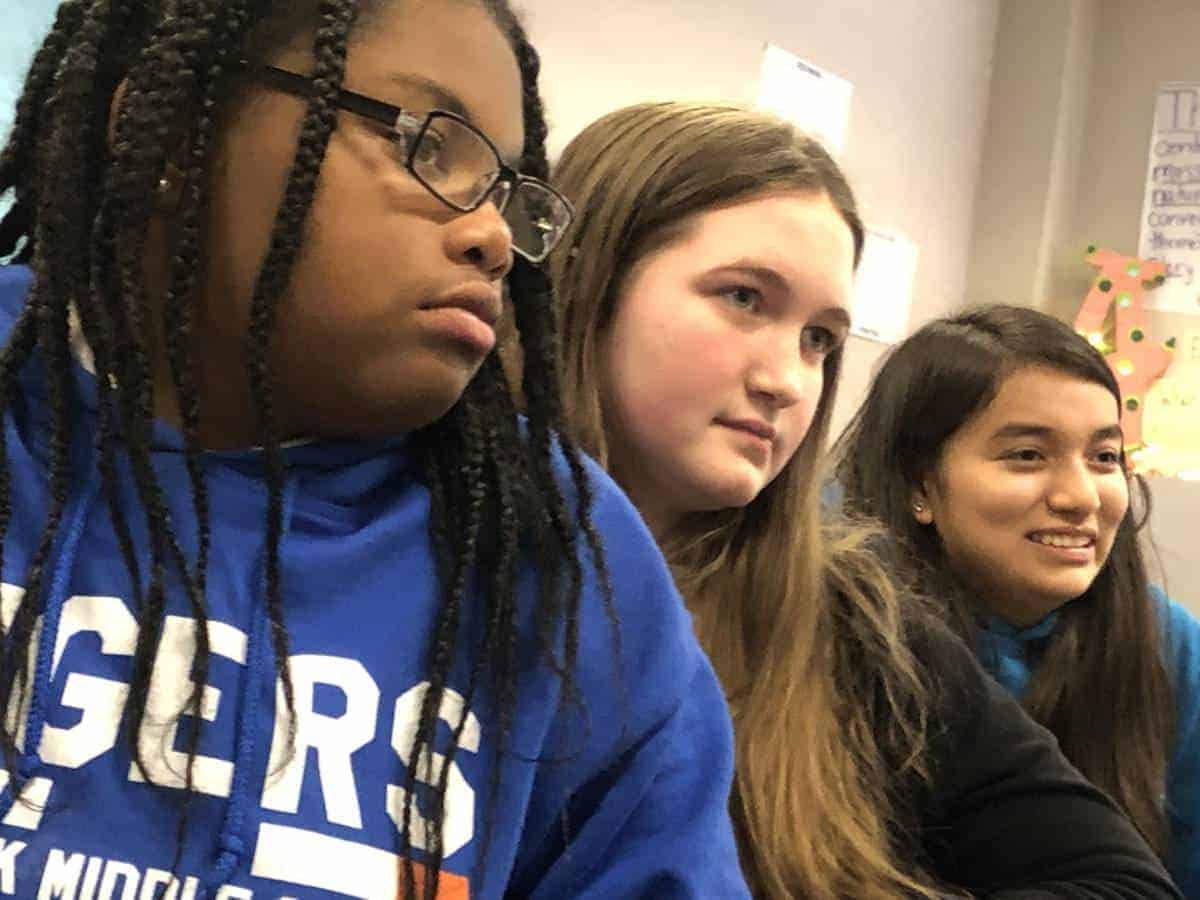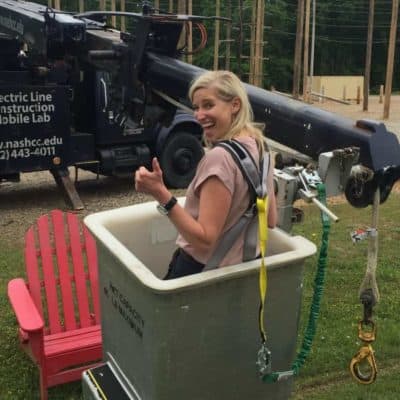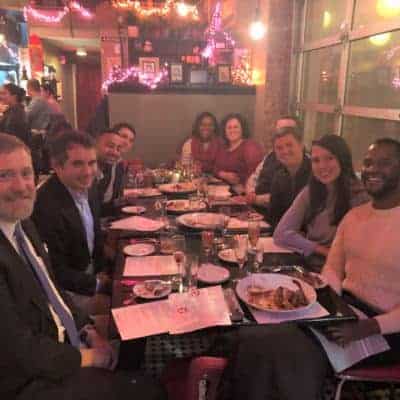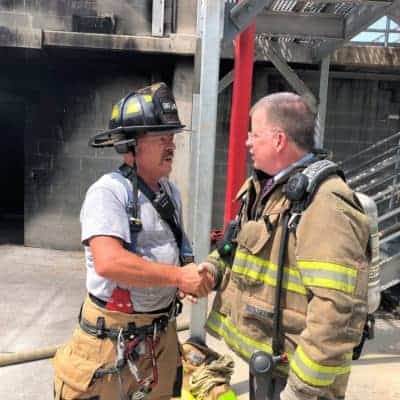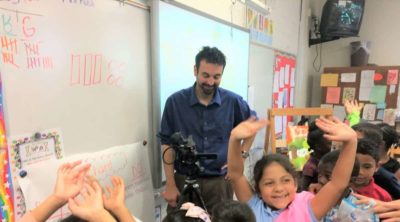“The beginning of our happiness lies in the understanding that life without wonder is not worth living.” — Abraham Joshua Heschel
Living and living well
A year ago today, a team of surgeons and specialists at ECU’s Heart Institute used a robot to fix my heart giving me a new lease on life.
https://www.ednc.org/2017/12/25/looking-ahead-2018-beyond-stem-importance-wonder/
After surgery, I found new meaning in the motto of the elementary school I attended, Irwin Elementary in Charlotte. The motto is living, loving, learning together. After this year, I’d add leading to it.
At the Aspen Institute’s Executive Seminar on Leadership, Values, and the Good Society, Todd Breyfogle challenged me to think about what it would look like to live well in our time and our place, a question that over the year would become framed in my mind as…
What’s our greater, North Carolina?
Loving by sharing coffee and cookies
At the first public event I attended after surgery, the Belk Foundation convened education leaders in Raleigh from school districts, nonprofits, state government, and philanthropy to think about education in North Carolina and across the nation. “We must be innovative in North Carolina for the sake of our students,” said Johanna Edens Anderson, executive director of The Belk Foundation.
https://www.ednc.org/2018/02/21/belk-foundation-brings-leaders-together-fostering-civic-dialogue-innovation/
Jeremy Anderson, president of Education Commission of the States, told us that night that in his work across the nation he has noticed that in states where “leaps and bounds” are being made, leaders have found ways to work across difference. “It’s a simple litmus test,” he said. “Can the people who can move this policy meet for coffee even if they disagree and talk though some of these differences?”
In all of the miles I traveled the rest of this year, I looked around to see if people in North Carolina were having coffee. Not so much, y’all, especially if it involves people who don’t think or look like us.
There are a lot of lines that can divide us: race and ethnicity to be sure, but also sexual orientation, rich and poor, old and young, urban and rural, conservative and liberal, Tar Heels and not-from-heres. Robb Webb with the Duke Endowment challenged us last week not to normalize division.
The beloved Robb Webb @DukeEndowment challenges us at #ReCONNECTNC on the framing of our rural|urban challenges and opportunities. Tells us not to normalize division and look for creative solutions. Amen. pic.twitter.com/VTso6wpUpT
— Mebane Rash (@Mebane_Rash) November 27, 2018
I like talking to people. On one of my favorite days this year, I had coffee with Andrea Dillon in the morning, who you might know as Lady Liberty, and ended the day having a drink with Tom Lambeth. I listened and learned a lot. Please try it.
Leslie Boney at the Institute for Emerging Issues is leading the way with ReCONNECT NC, a three-year initiative focused on reengaging the state with each other and reconnecting us to community, to and between our rural and urban spaces and places, to job opportunities, to well-being and productivity, and to technological opportunity.
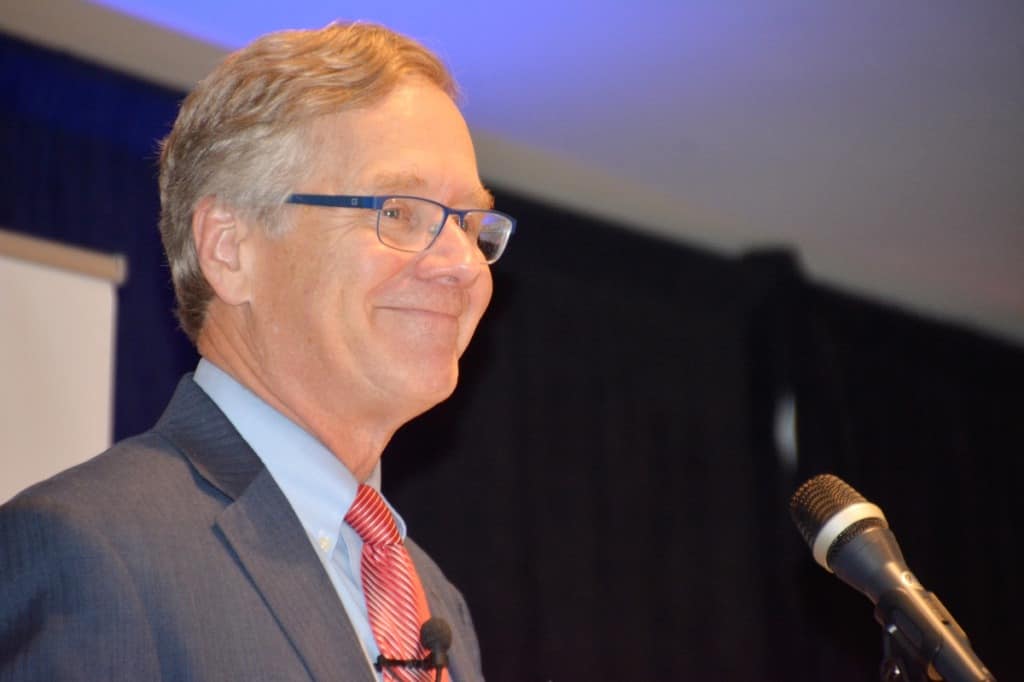
“Declining social trust, eroding faith in public institutions, and a rise in out-of-work and isolated North Carolinians,” says the IEI website on ReCONNECT NC, “all speak to a profound challenge holding our state back. Residents are losing ties within our communities, our jobs, and even neighbors and acquaintances. This disconnection has measurable social, health and economic consequences. Reconnection is vital to our state’s overall prosperity.”
The next ReCONNECT is on February 11 in Raleigh, and I hope you will join IEI on their journey to leverage interconnections across people, place, and prosperity to build a greater North Carolina. Sign up here today.
You can also take Leslie up on his cookie challenge and connect with someone you don’t know.
Three fun things to do on Thanksgiving, Tar Heels! Here is #3. Take @lboney up on his challenge, and post selfies of you meeting a new neighbor. #loveNC https://t.co/TN0kLeERX5
— Mebane Rash (@Mebane_Rash) November 22, 2018
In 2019, EdNC will invite philanthropists and policymakers to have coffee, share cookies, and maybe even drink a martini as we explore building bridges between philanthropists and policymakers. It’s called BRIDGE, and we will give it a go on April 28-30, 2019. Stay tuned.
Learning from our students
You learn the most in the hardest years. This year, I lost my dad, survived surgery, turned 50, my oldest son moved clear across the country, and at least a few other things did not go quite as dreamed.
It’s the year I learned to cry. It is the year I learned to laugh out loud. And thanks to Holly Jones, who does this better than anyone I know, I learned to do both at the same time.
I learned the most from our students.
The first time I was allowed to drive after surgery, Stuart Egan and his family invited me to come over to West Forsyth High School for a basketball game. It was 10 days after the deadliest shooting at a high school in our country’s history, and because our schools anchor our communities, everyone showed up for the game — the principal, the assistant principals, the teachers, the parents, the students, community leaders.
Of all the students I have met, it is Stu’s son, Malcolm, who I think about every morning as I head off to work. As his Dad writes, Malcolm…
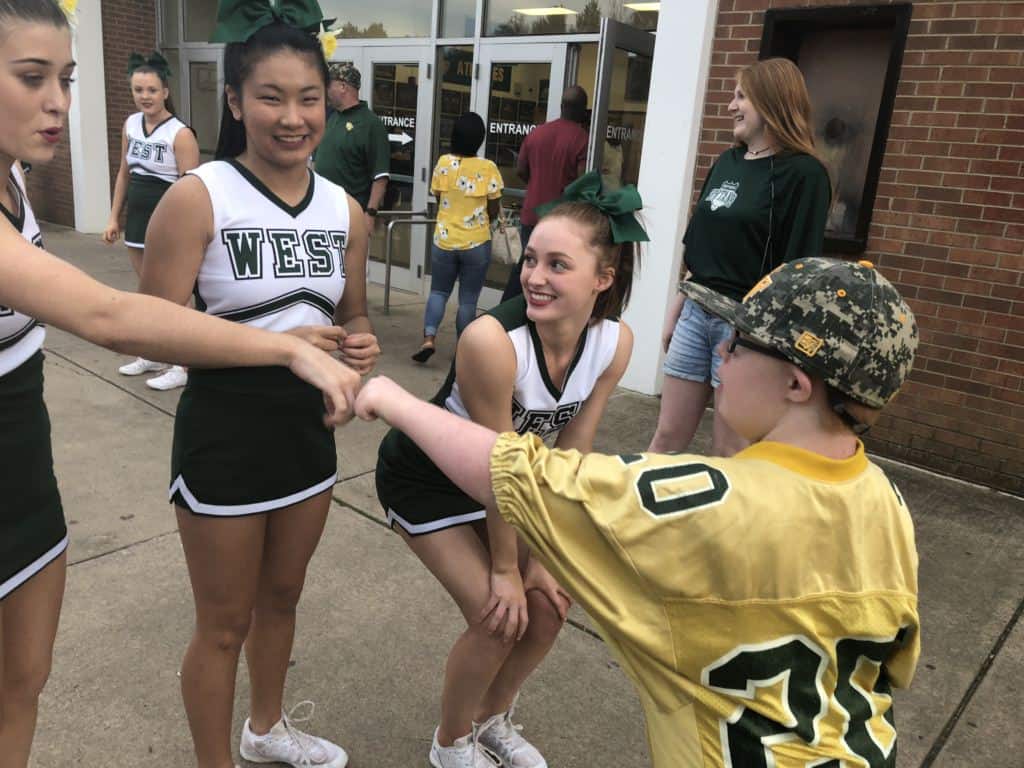
teaches everyone how to live in the present,
honestly tells you how he feels,
reminds us that special needs actually applies to everyone,
changes clothes three times a day because, well, because,
has perfected the art of the smile,
…dances even when he is sick,
laughs infectiously,
eats ice cream with the respect good ice cream deserves,
and takes every stereotype, crushes them in his hands, and throws them away because he does not believe that anyone is standard or average.
I also met Miracle this year. Miracle attends Phillips Middle School in Edgecombe County. This summer, along with her principal and assistant principal, she walked us around her neighborhood, Mobile City. We talked about why kids don’t go to school, what they like and don’t like about school, literacy, and why relationships matter. She identified four reasons kids don’t go to school — it’s boring, it’s a lot of work, kids don’t like to use their brains, and they get picked on. That’s not the list our research on chronic absenteeism came up with, but it’s a real list that begs for a different set of interventions.
I went to see Miracle again on her first day back to school after summer, and I was struck with the complicated web of public problems we are leaving the next generation of Miracles, including the polarized world we live in.
I believe it is more important than ever that everyone, including philanthropists and policymakers, understand what we do, how we do it, and why we do this work. When we teach people about our work, we create awareness about public problems, we reorient the focus towards the solutions, and we lay the groundwork for change.
Between Miracle and the student-led redesign we see happening at the micro school in Edgecombe County, I learned this year that it is possible and probable that students can and should and will lead the way in helping us think about what school should look like both now and in the future. Which brings me to my hardest day…
https://www.ednc.org/2018/10/30/whats-our-story-on-school-violence-north-carolina/
Last week, I was in a middle school in Battleboro with community and state leaders. As the principal greeted us and welcomed us to his school, the first thing he noted was that no drills were planned for the day and any alarms would be real.
Sobering, one month after the school shooting at Butler High School. It is important to me for people to understand that the vigil the night after the shooting at Butler wasn’t just for the student we lost and his family, or the student we failed and his family, it was for all of the students who were trying to figure out how to screw up the courage to go back to school with the gun shot still ringing in their ears.
The pastor at the vigil said, “We will tell a story as a school, as a community, as a city that will inspire people to believe in greater.”
These toughest of issues — please read and share our series on student and school safety this week — begs these toughest of questions:
What is our story, North Carolina? What is our greater?
Leading and enlarging the leadership capacity of others
I remember about a week before the surgery taking Nation, our chief growth officer, for a walk to tell him what was going on and what was going to happen over the next several weeks. At the time, we were just beginning to pilot our coverage of community colleges, and I told him he would need to run the pilot and lead it in a way that was authentic to his own understanding of the importance of postsecondary access to our students, our state, and our future.
Nation did not say a single word on our walk that day, and I did not know if he heard me, was in denial, or it was all just too much. But by the next morning, he had a plan that led during 2018 to our expansion and our blitz of all 58 community colleges. And on the day I had surgery, he visited the community college down the street from the hospital.
https://www.ednc.org/2018/08/27/community-colleges-then-and-now-and-my-hope-for-the-future/
That’s called coming up into the balcony, a leadership phrase I learned this year from Tim Griggs. Tim is our coach through the Knight-Lenfest Newsroom Initiative, and he appeared in my life around June as the closest thing I have found to a real-life Yoda.
Tim co-authored a book, Table Stakes: A Manual for Getting in the Game of News, which is more about change management than anything else. His book is always open on the Kindle app on my phone, and he gave me a frame for what is important to me in our work: always thinking of you, our audience, first; the need to organize our teams through roles to get the work done; how to earn and build loyality; performance-driven change; and this idea of growing leadership. I am so proud that Nation has been invited to attend the Media Transformation Challenge at Harvard next year.
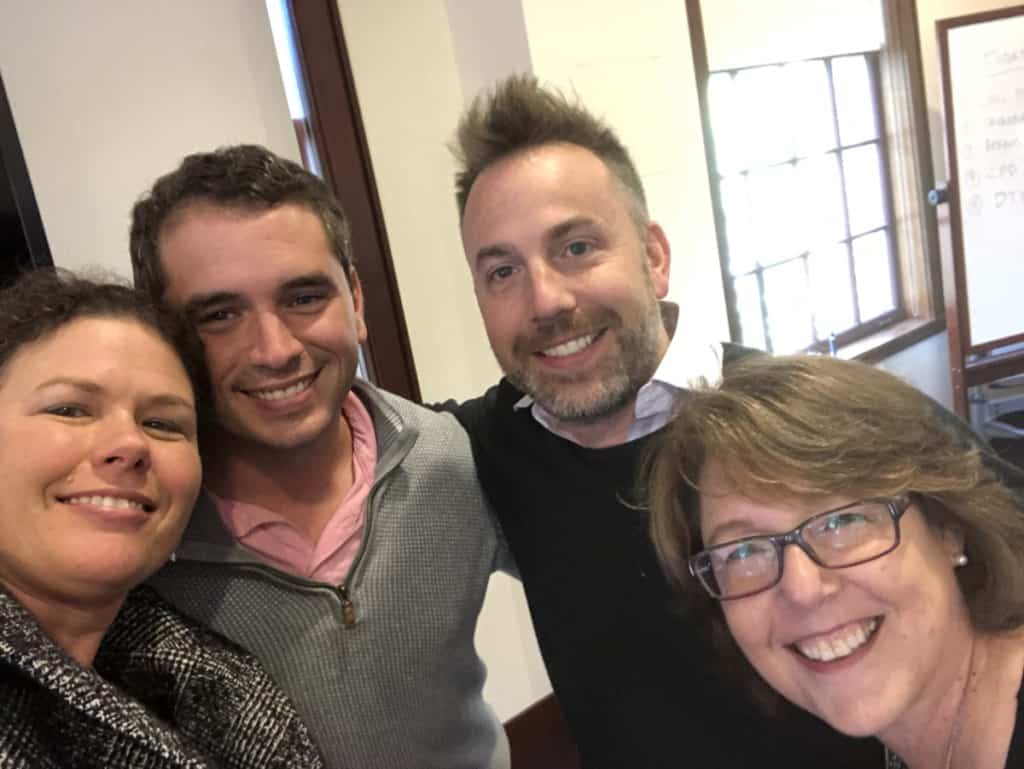
The public policy issues we face now and in the future, as a state and as a society, are too big and too important for one leader. That’s why I believe in building teams of peer experts, or as Tim would say, teams are our crucible for change. Under the leadership of Molly and Analisa, our blitz of all 58 community colleges was a remarkable tribute to this organizational theory and the leadership of the EdNC team.
It’s also why I believe in ecosystems as levers for systems change.
In North Carolina, Anita Brown-Graham led the way this year identifying bright spots in communities across our state where there are innovative efforts to accelerate attainment.
https://www.ednc.org/2018/11/21/ever-thankful-for-north-carolinas-bright-spots-and-our-leaders-who-are-working-to-build-a-greater-north-carolina/
Nationally, my colleagues at the Governmental Research Association are leading 21st century think-and-do tanks, surfacing public problems in real time and then providing trusted, independent research to everyone from people to philanthropists to policymakers on the most important issues facing our neighborhoods and our communities, our cities and our states.
Jeff Hornstein at the Economy League of Greater Philadelphia is going one step further and actually enlarging the leadership capacity of his city and his region. The Economy League’s leadership exchange is premised on the belief that informed and collaborative leadership will prompt civic innovation to identify shared solutions, empower collective problem solving, and drive economic prosperity regionally for all. I want to try his model in our rural areas facing persistent economic distress.
https://www.ednc.org/2018/10/04/the-role-of-think-tanks-in-the-21st-century-growing-our-communities-now-and-in-the-future-together/
Our future
Thank you for your love and support this year.
Thank you for going up in the bucket with us, for fighting fires with us, and for the delight and wonder you helped us find along the way this year.
In my notes from my executive seminar with the Aspen Institute, I wrote, “it’s not clear that the tools we have inherited are adequate for the challenges we face.”
On my trip to Seattle with the Economy League, Arun Prabhakaran, chief of staff in the Philadelphia District Attorney’s office, offered five questions to test whether we are actually creating momentum for real change:
Have we tested our assumptions about the nature of our problems?
Are we creating learning environments that are safe and challenging in our organizations and communities?
Are we building relationships that breed trust and collaboration?
Are we examining problems from a range of diverse and inclusive perspectives?
Are we using empirical data and creativity to cultivate and drive innovation?
As we head into 2019 together, let’s live, love, learn, and lead in a way that empowers our future generations to determine and build a greater North Carolina.
From my family to yours, happy holidays, y’all.
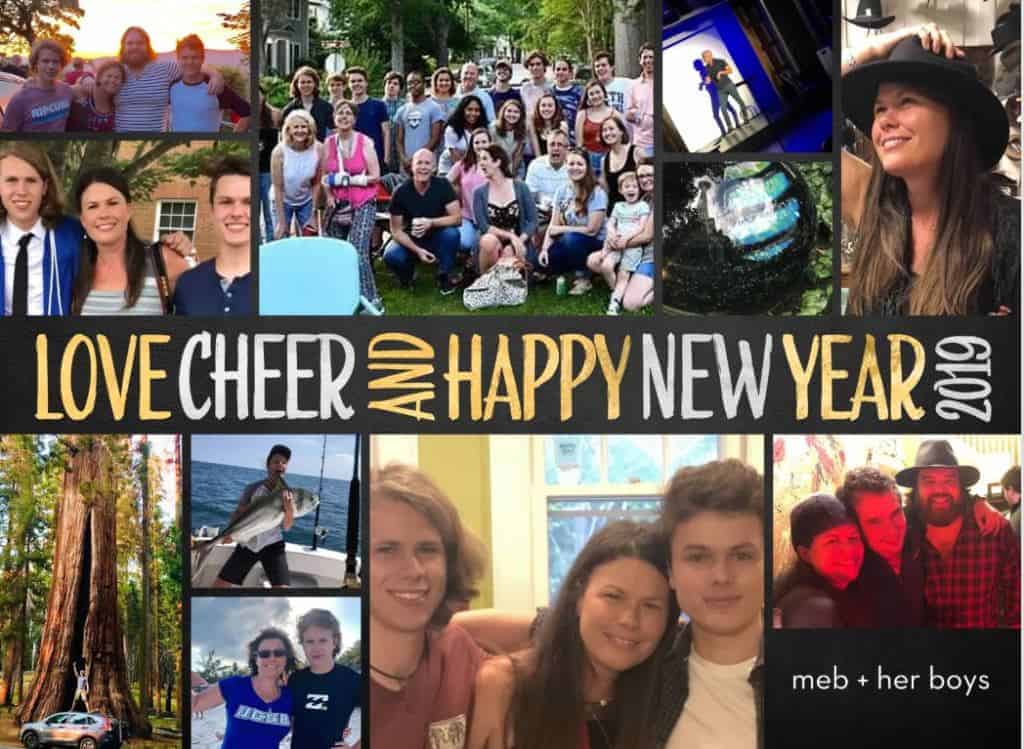
#loveNC,
